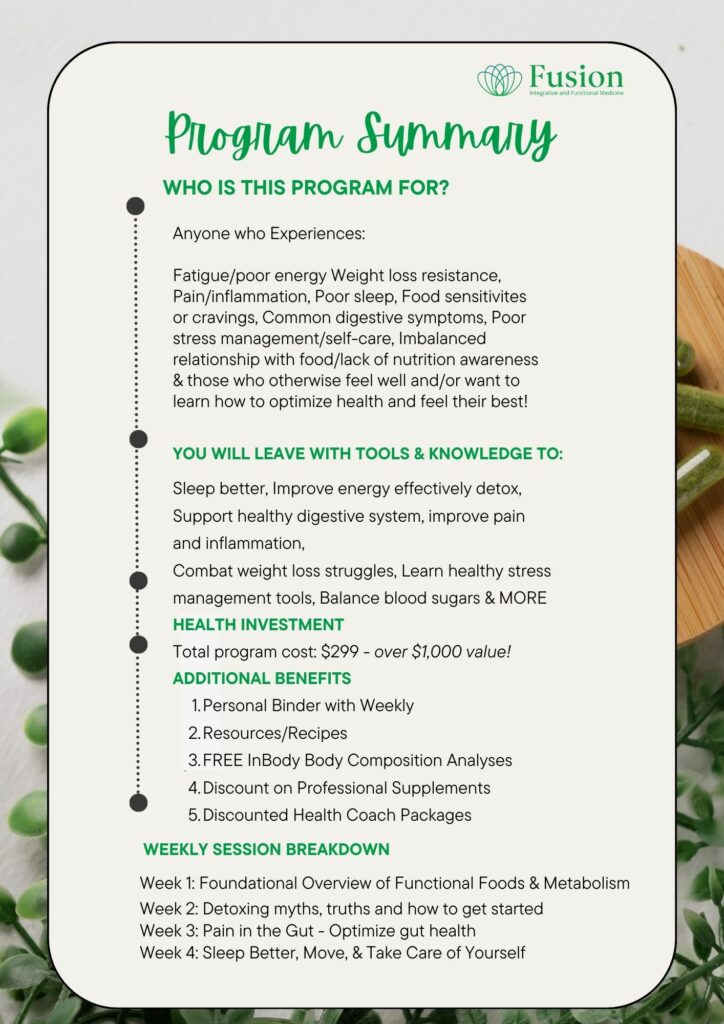Six reasons why eating the whole foods of the season can optimize your health and keep more money in your wallet
New seasons bring on changes. And those changes should include what’s on your plate.
You may have heard that eating locally and seasonally is a good thing, but with all these convenient options, is shlepping to the farmers market actually worth it? Short answer: Yes.
Eating seasonal fruits and vegetables throughout the year benefits your health and saves you money, and is kinder to the environment. Eating in harmony with the seasons may seem like a trendy health fad, but it’s actually been a way of life for humans for thousands of years—and for good reason.
Here are the many reasons to make seasonal foods an integral part of your diet this fall:
🧄Seasonal produce is fresher and healthier.
Time is the enemy of fresh produce: As soon as they leave the vine or tree, fruits and vegetables start to lose their nutritional value. Some produce—such as spinach and broccoli—begin to lose nutrients within hours of picking, while others—such as apples, carrots, and potatoes—stay fresher longer. Produce that’s not in season is picked, stored, and often transported, which affects the quality.
Seasonal produce is more flavorful.
Vine-ripened tomatoes are often prized for their flavor, as they have a richness from fully maturing in the sun. That’s because the freshest, best-tasting produce comes right from the vine or tree. Foods grown out of season are typically picked before they are ripe, so they can be transported and stored without spoiling. Out-of-season produce may look good, but the flavor can be bland compared to a crop picked at high season.
Seasonal produce can help broaden your horizons.
Let the season’s fresh produce inspire you to try some new foods. Some fruits and vegetables may only be available certain times of the year. What a great opportunity to test out a new recipe?!!
Seasonal produce suits the season
Don’t you crave pumpkin-flavored, well, everything in the fall? The traditions that surround food that are in season are not by accident. These foods follow their natural growing and ripening rhythms. When certain fruits and vegetables are not in season, post-harvest treatments, known as ripening agents, are used to make them available year-round. These include chemicals, gases, and heat processes. So avoid the extra chemicals and take advantage of what Mother Earth is producing.
Seasonal produce is plentiful and therefore cheaper!
When a fruit or veggie is in season, it’s abundant and available at a lower price. Eat well and save money- it’s a WIN WIN!
🍎Seasonal produce is environmentally friendly
Environmentally, seasonal foods typically require less transportation and less intensive farming methods. Less travel and imports mean fewer fuel emissions.
For a full list of what’s in season check out this article by The Spruce Eats: https://www.thespruceeats.com/
Clinical References
Seasonality and dietary requirements: will eating seasonal food contribute to health and environmental sustainability? Aberdeen, UK: Public Health Nutrition Research Group,Rowett Institute of Nutrition and Health, University of Aberdeen, 2014. https://www.ncbi.nlm.nih.gov/pubmed/25027288)
Top 10 Reasons to Shop at a Farmers Market. Nutrition.gov. https://www.nutrition.gov/subject/shopping-cooking-meal-planning/farmers-markets)
Maximizing the Nutritional Value of Fruits and Vegetables. University of California, Davis. http://www.fruitandvegetable.ucdavis.edu/files/197179.pdf
Food Spoilage, Storage, and Transport: Implications for a Sustainable Future
BioScience, Volume 65, Issue 8, 01 August 2015, Pages 758–768 https://academic.oup.com/bioscience/article/65/8/758/240222







